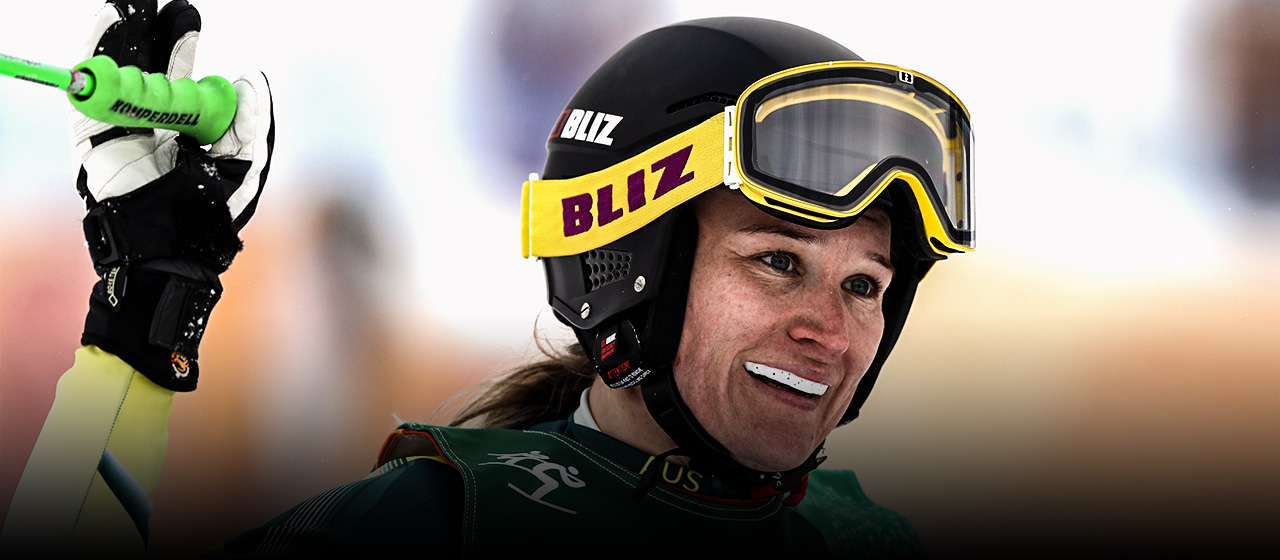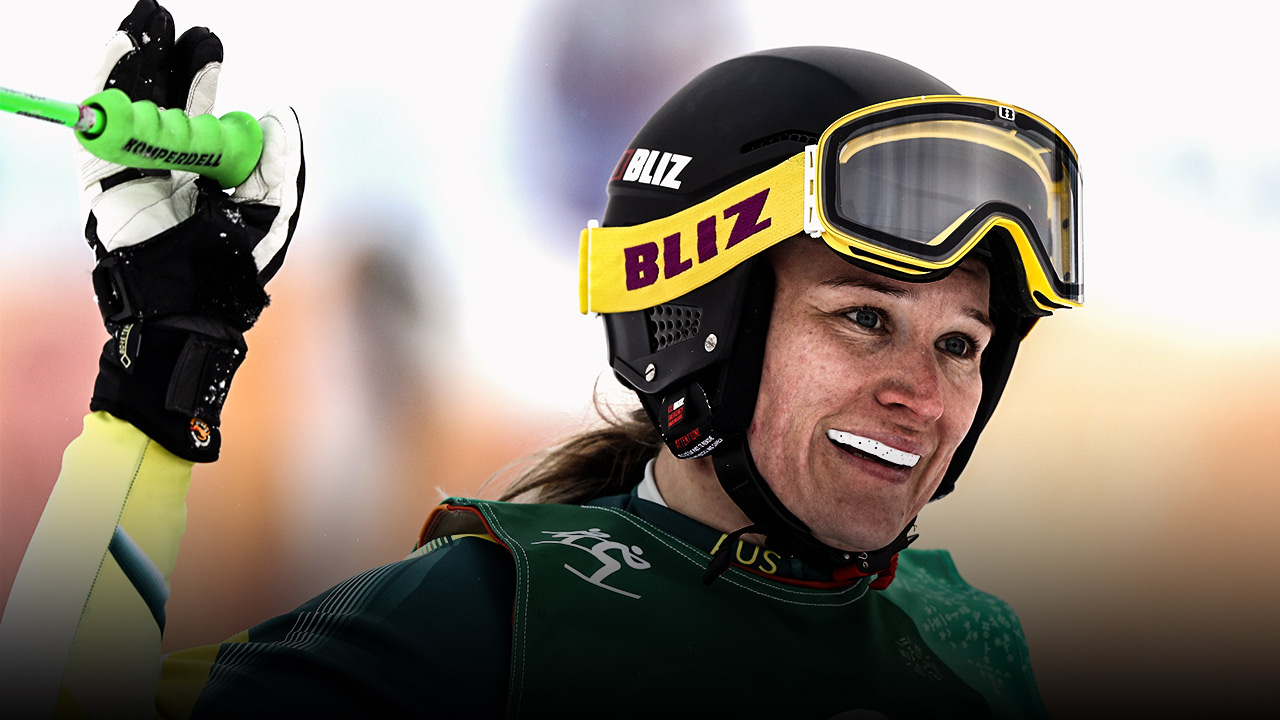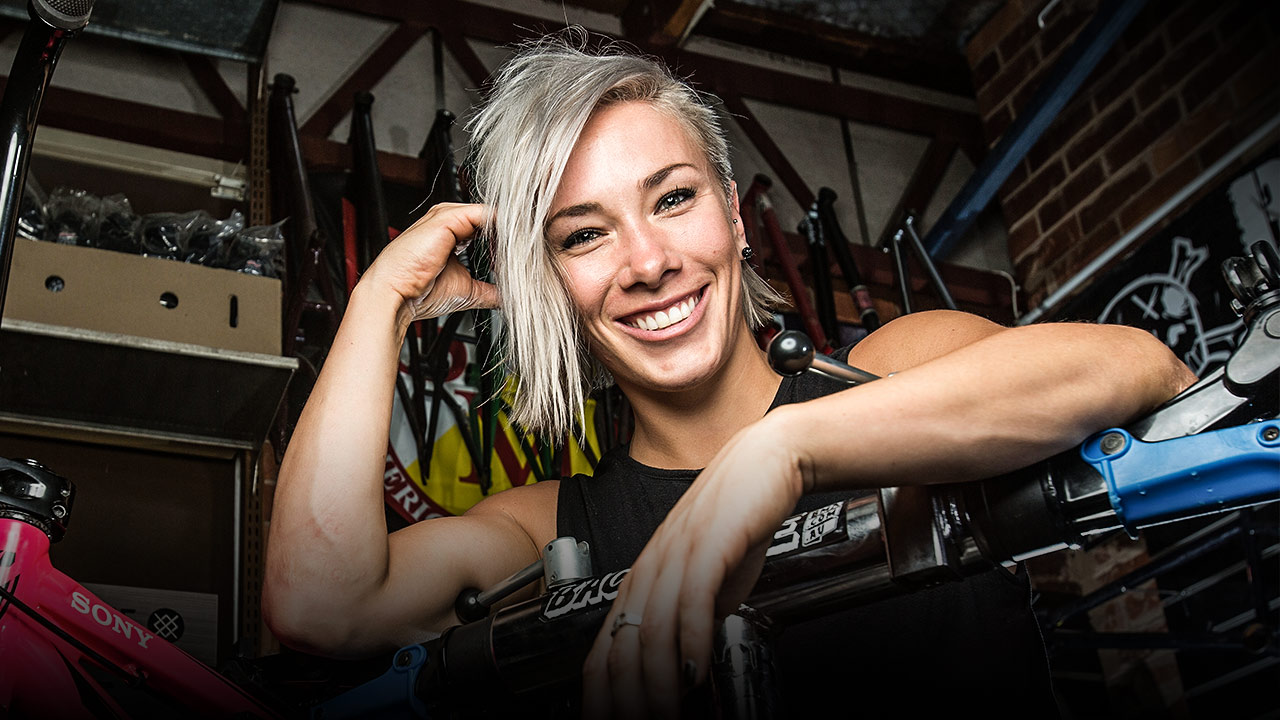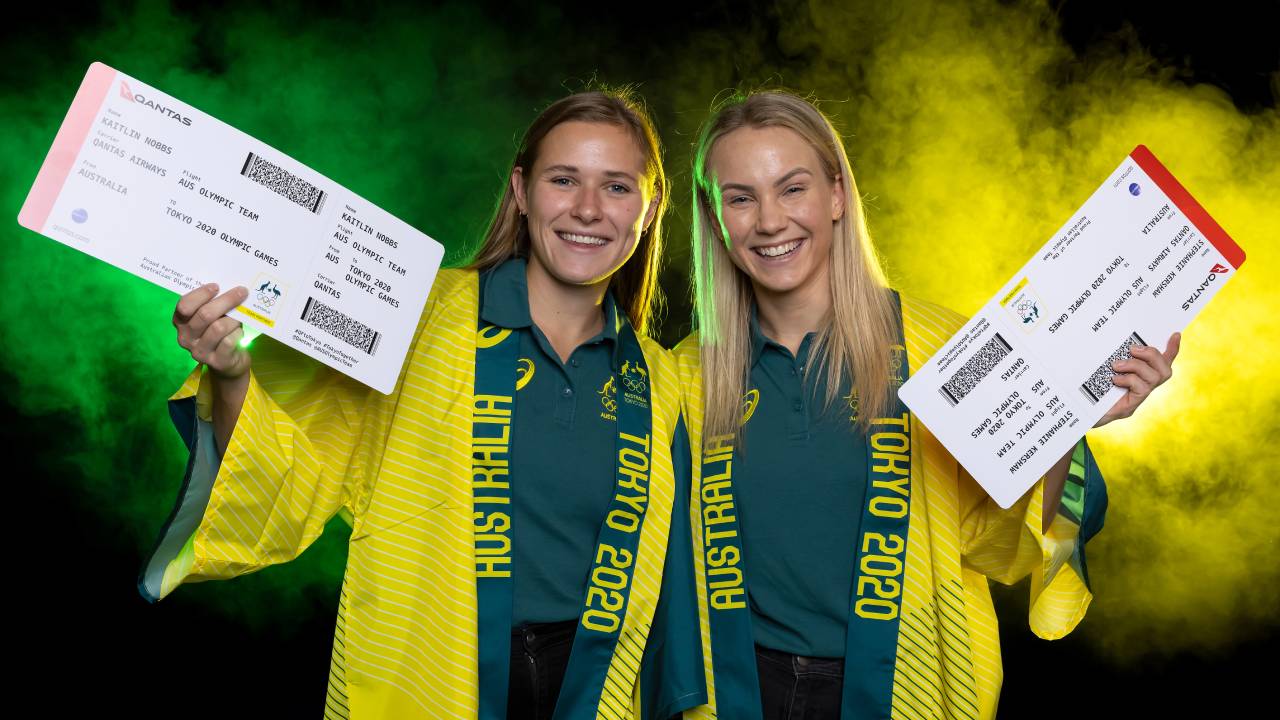Olympic Sports
Fighting through the Covid fear
Sami Kennedy-Sim will be competing at her third Winter Olympics in the ski cross event in Beijing. She reveals how the threat of Covid has her on a knife-edge.
I can tell, looking out my window in a lakeside German village 90 minutes from the nearest rideable snow and days out from travelling to Beijing, that this will be an Olympics completely unlike the other two I’ve competed in.
My sport, ski cross, is a perfect 90-minute TV show. It’s not actually that great to watch in person at a venue – Australians will have a much better viewing experience watching it from home.
I call my discipline, BMX on skis and it’s an exciting watch. Old mate that lives in central Australia and has never seen snow and knows nothing about skiing or snowboarding could turn on the TV when ski cross or snowboard cross is on and understand what’s going on.
It can be dangerous, and certainly, every race has risk. While I might be in control of myself there are three other variables in the other racers – four if you include the track.
You’ve got these unpredictable people in beside you but I have great trust in my competitors as well. That gives you the freedom to explore and push your own boundaries.
The impact of Covid in my preparations for the ski cross event at the Beijing Olympics is significant, and, with reports of an Australian athlete having tested positive for Covid on arrival into China, we’re all on a knife-edge right now.
I’ve been losing sleep over it. It’s consuming my thought processes. And for sure it takes away from performance.
If someone gets sick in our team, the whole team goes down. So, it impacts more than just you.
Me and my small team – ski technician Sylwester Latusek, physio Benny Pagett and coach Shawn Fleming – were meant to have been putting the finishing touches on my preparations in the resort town of Cortina, training with the Italian team, but that fell through so instead we rented out a house in Germany.
View this post on Instagram
Part of pulling the trigger and making that decision was that one of the overarching goals for this whole season is simply not to get Covid.
It has been strange to spend so much energy on something that ultimately, in a big way, is out of your control. But I’ve looked at virus management as part of my performance – a weird concept when it’s got nothing to do with how I’m performing on snow or how heavy I can lift in the gym.
Before leaving for Beijing, the only time that we were in contact with anyone in the general public was during a very strategic supermarket run. We had a list, worked through it, and got the hell out of there – no browsing shelves, or going into clothing stores. All I want to do right now is have a haircut but I won’t, even though my last one was in May.
It can be incredibly isolating, especially when you see, out your window, the rest of the world operating in a relatively normal fashion.
But we have to be a lot tighter with this than the general public. We won’t let anyone in this house that’s not within these walls already.
I’ve done a bloody good job of not having Covid so far. And I don’t want that to end any time soon.
It’s hard to measure the impact that Covid has on my direct performance. I’m not in a sport where you just run 100 metres. There are so many variables in my sport, but in terms of how I’m managing myself, and how I feel, I’m incredibly stressed, leading into what is already normally a very stressful period coming into an Olympics, with this other issue to consider.
Along with the pressure of avoiding Covid, the financial stress on athletes is amplified this season. Let’s say, you get sick. You get left somewhere on your own. The team carries on and that comes at a cost. Nights in hotels, ordering take out – the cost increases.
We’ve had to test every three days with rapid tests then we test every three days with a PCR test to enter competition bubbles. It’s another expense that prior to March 2020, none of us had forecast.
I was approached during the Tokyo Olympic Games by somebody who works with a financial institution and he wanted to know how he could help athletes.
Together we’ve developed a program that has launched in Australia and New Zealand in 2021. We aim to build financial literacy and resilience in young athletes, to empower them and teach them how to transact efficiently when overseas and how to manage their money both on the road and at home.
Hopefully, as we go on, this program will grow, and grow globally, to help support young aspiring athletes, with their financial arrangements.
Everyone wants to get the most out of their dollar. And it is difficult for us because our earning capacity is limited by being at home for just three or four months of the year.
If you’re relying on prize money as an income stream, and the competitions aren’t going that well because we are doing sports that are so unpredictable, you’ve got to come up with some solutions, or some ways to empower those people to make good choices and help manage their money.
Fortunately, I went through a process of learning how to write budgets and planning and living by the decisions that I made, with my parents. I was working for them at their business and working at other businesses in the country town that we live in. I would need to make a certain amount of money and there would be consequences if I’d mis-budgeted.
If I didn’t allow for an extra night of accommodation here or there, I’d end up having to sleep in the car. It made me hyper-aware of how a program has to operate and how an athlete has to operate financially. The more educated people become, the more empowered they become.
As sportspeople in Australia, we learned so much in Tokyo about how, through these difficult times, sport unifies our community. It is really important to the majority of our community.
We felt so unified despite having so much division, so much isolation, and so much segregation. New South Wales was in and out of lockdown. Victoria was completely in lockdown, with other parts of the nation in the same boat.
There was so much stress happening around the time that Tokyo was on. And people tuned in and wanted to be part of something – wanted to believe in something.
View this post on Instagram
That was so powerful and what I’m hoping will continue throughout February with our winter team. Because it’s a smaller number of people, the public gets the opportunity to get to know us and feel part of the journey – because they are an important part of it.
There are viewing parties happening across southeast Australia for the Olympics and knowing that there’s the potential for people to come together, safely at home and celebrate and watch is cool.
I went to China for the first time in November for a World Cup.
That was such an eye-opening experience for someone that’s never been to China, let alone has to go to China in a pandemic.
I felt incredibly safe and I feel definitely empowered now, with the choice that we went in November, coming into February.
They just want to do a good job. China don’t want there to be a problem in Beijing, they want to show the world that they’re the best country in the world. In their eyes, they are.
They’re going to do a great job and it’s going to be spectacular show. No one can visit, but it’s ideally built for TV anyway and primetime in Australia.
Winter sports – and any Olympic sports, get one shot every four years to be in the media – to be newsworthy. It’s important to me that we go and we show that sport has the power to unify the globe. That we focus on the good because there’s so much good to be seen.
This has been a long career for me. I haven’t had a quick journey to success. I’ve had to work my arse off.
I was 28th at my first Games, eighth at my second and I’d love to be on that podium. I think it would just propel my sport in my country and open the door for people to pursue the long game and not keep focusing on sport as a short game.
More about: Covid | Olympic Games | ski cross | Winter Olympics






 Load More
Load More